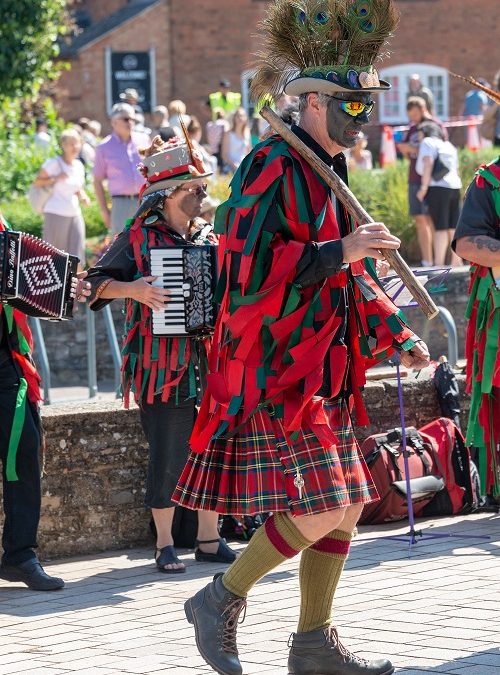 Today’s mumble is it’s close relative ‘Mummer.’ So we can all know what is meant by ‘mummer, the Middle English Dictionary offers the following three definitions for mǒmmer n. (a) One who mumbles or murmurs; also, one who keeps silent; (b) one who conceals the truth, a dissembler; (c) one who performs in a mumming.
Today’s mumble is it’s close relative ‘Mummer.’ So we can all know what is meant by ‘mummer, the Middle English Dictionary offers the following three definitions for mǒmmer n. (a) One who mumbles or murmurs; also, one who keeps silent; (b) one who conceals the truth, a dissembler; (c) one who performs in a mumming.But as the definitions imply, mumming is not limited to any single day of the year, nor is costume required. Most of us are familiar with the phrase ‘keeping mum,’ which is equivalent to keeping silent about something. Just remember that when you do ‘keep mum’ you are participating in an activity that is close to 1500 years old. As for any other comments about mummer, I shall keep mum on the subject. Please comment–do not keep mum–with your thoughts about this or any of the Medieval Mumbles posts. Thank you.


Interesting! Keeping mum is a good habit, I need to practice, especially after looking at Face Book posts ,or spending any significant time with people. Holly
Thanks for commenting Holly.